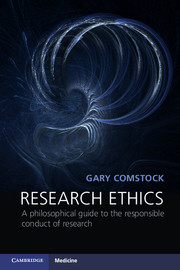Introduction
Published online by Cambridge University Press: 05 February 2013
Summary
Thomas Edison is often credited with creating the first research laboratory. Legend has it that when a new hire asked about the rules of the lab, Edison responded with a wisecrack. “We don’t have rules. We’re trying to accomplish something.”
This book, in part, is about the rules of research – but those of you who find such rules burdensome, don’t put the book down yet. We have some empathy with you. We understand the sentiment behind Melissa Anderson’s assertion that it’s “no secret that researchers tend to view instruction in the responsible conduct of research as an annoyance” (Anderson 2009). That said, we must immediately add that the policies and regulations governing research are critical to your – to our – success. If someone tries to conduct research in ignorance of the rules they are headed for trouble. And that said, we return to our opening theme, Edison’s quip. In this book we will not take a traditional approach to what is now called RCR “training.” Rather than emphasizing the rules, we emphasize what we’re trying to accomplish.
And what is that? In a phrase, it is a philosophical task, the asking of good questions.
The goal of this book is to welcome researchers into the community of question-askers
But let’s start with who “we” are. The book is addressed primarily to graduate students beginning their careers as researchers, people who ask and try to answer good questions. Because there are all kinds of good questions, the book features the contributions of scholars from diverse disciplines within the so-called knowledge industries. So “we” usually means the so-called author’s we – me and you. Sometimes, however, I use the editorial we and cast myself in the role of a spokesman for a larger group of people all of whom – you must take it on my authority – agree with my opinions. I’ll let the context convey which form of “we” I mean.
- Type
- Chapter
- Information
- Research EthicsA Philosophical Guide to the Responsible Conduct of Research, pp. 1 - 20Publisher: Cambridge University PressPrint publication year: 2013



